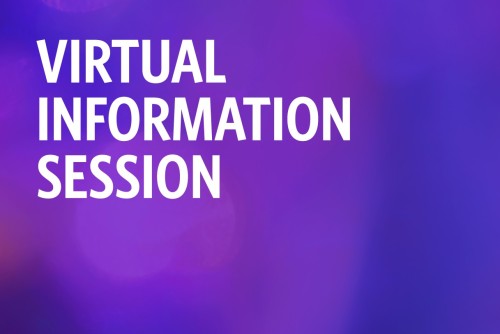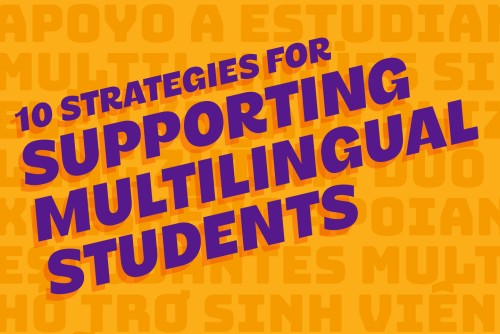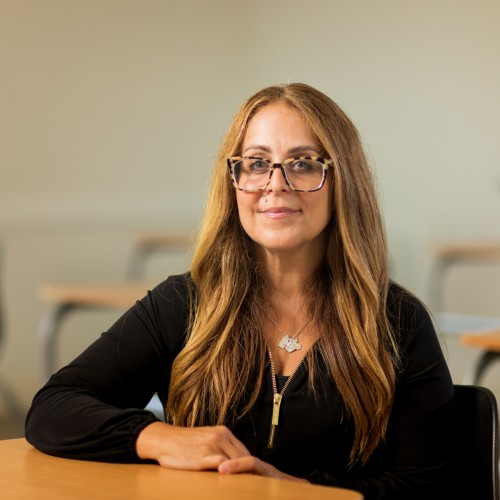Diversity, Equity & Inclusivity Graduate Certificate
The Diversity, Equity & Inclusivity (DEI) Graduate Certificate Program prepares educators who keep social justice, equity and democratic education at the center of their practice.
Finish in 9 to 12 months. This program is offered fully online.
Upcoming Application Deadlines
- Summer Semester: May 1, 2025
- Fall Semester: August 1, 2025
- Spring Semester: January 1, 2026
15-credit Graduate Certificate in DEI
The Diversity, Equity & Inclusivity (DEI) Graduate Certificate Program is designed to foster the skills educators need to respond to the realities, demands and challenges of educational spaces while keeping a focus on equity, social justice, diversity and accessibility.
This program includes late afternoon, evening and weekend online course options and is ideal for working professionals. Pursuing a 15-credit graduate certificate may qualify Massachusetts educators for a salary lane change (master's+15 credits).
Why Stonehill?
- Certificate program courses offered fully online
- DEI program based on award-winning faculty research
- Faculty with well-established expertise in the field
- Specialized student support framework guides students through program requirements and career preparation
- Social justice mission reflected throughout student experience
Be a Change Agent
Stonehill's graduate study in diversity, equity and inclusivity includes impactful courses that help educators recognize and disrupt inequity and injustice in educational settings. Our curriculum keeps inclusivity central to how we prepare educators, using equity as a critical lens for their work.
The 15-to-18-credit Diversity, Equity & Inclusivity Graduate Certificate features a selection of courses designed to prepare educators to create classroom environments that encompass a range of student needs and are rich with differences.
This program has shifted my outlook and approach to education through the lens of DEI to provide a more accessible, equitable and inclusive form of teaching.
Upcoming Graduate & Professional Studies Events
-
Virtual Information Sessions
Join us for a virtual information session or drop-in session to learn more about our master’s degree and certificate programs.
-
10 Strategies for Supporting Multilingual Students
Join us Wednesday, May 7, for the virtual seminar "10 Strategies for Supporting Multilingual Students." This seminar features strategies to support language diversity in the classroom.
-
Teacherpalooza: A Teacher Appreciation Event
Join us Thursday, June 5, for Teacherpalooza, a teacher appreciation event hosted by Stonehill Graduate Teacher Education to thank educators for their hard work.
Studying Education at Stonehill
Stonehill College's graduate teacher education programs prepare educators to lead inclusive learning environments. The College offers master's degree, teacher licensure, community education and graduate certificate program options.
Schools today must strive to be inclusive environments, and educators in our program are prepared to be leaders in creating equitable spaces where difference is valued.
Graduate Teacher Education at Stonehill
Stonehill College's graduate teacher education programs aim to prepare knowledgeable, reflective, caring and flexible educators who embrace learning, scholarship, community and advocacy in their work. Social justice and democratic education are at the center of our work and underpins all programs, courses and experiences. We believe education can disrupt systems and processes that perpetuate injustice and inequity and embrace diversity and individuality as strengths.
We advance our mission by modeling the creation of democratic spaces in the graduate classroom that reflect equitable, accessible and inclusive learning environments where students' voices and perspectives help to shape the construction and the provision of their learning.
Three tenets guide our program philosophy:
- Social justice education
- Democratic education
- Anti-oppressive education
Graduate Teacher Education Program Outcomes
Our graduates
- Foster care, connection and community with students, colleagues and families
- Promote inclusivity, diversity and equity in educational spaces
- Work to disrupt systems that perpetuate oppression and inequity
- Embrace teaching practices that foster social justice and democracy
- Lead by making education accessible for all learners
- Elevate student voices and perspectives in education
- Act purposefully to continue to learn and contribute to the profession
Rigorous Academics and the Support to Succeed
Stonehill’s graduate teacher education programs recognize the challenges graduate students face in prioritizing work, family, personal and graduate school commitments. Our Graduate Student Support, Access and Success (SSAS) Framework is designed to support students’ success from program start to finish.
Specifically, this approach provides:
- A proactive vs. reactive framework for supporting graduate students’ variable needs within their program
- Clear benchmarks for assessment of candidate readiness
From the admission process to graduation, students have a clear understanding of both expectations and the support available to help them achieve their goals.
Contact Information
Graduate & Professional Studies Admission assists students as they explore graduate and professional opportunities offered at Stonehill College.
Meet the Director of Graduate Teacher Education




